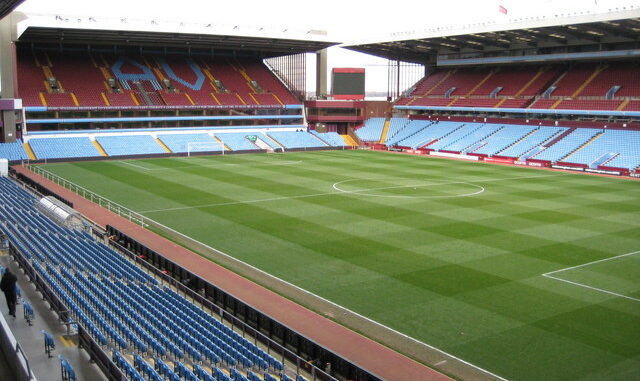
Aston Villa’s stance on renaming Villa Park revealed as Francesco Calvo makes admission
Recently appointed president of business operations Francesco Calvo has a big job on his hands at Aston Villa.
The club is restricted in the transfer market by its revenue, which is significantly less than that of the Premier League’s big six commercial clubs.
It’s a battle that Newcastle United are fighting too, despite both clubs qualifying for the Champions League over the past three seasons.
Villa even reached the last eight of the competition last season, which boosted their revenue as a result of prize money, but they have not been allowed to kick on this summer and spend like their domestic rivals.
Calvo replaced Chris Heck as the club’s financial chief earlier this summer. He is tasked with expanding the club’s opportunities to bring in money and therefore raise the ceiling of what the football department can spend as a result.
There are certain areas of the football club where Calvo will look into to generate funds, while some were untapped by Heck.
One example is stadium naming rights at Villa Park, but speaking in an interview with The Times, Calvo admits it’s not at the forefront of his mind just yet.
“It hasn’t been a top priority up to now. We know Villa Park is a historical name and we cannot change the name. That’s a given. But [an alternative] is something we can look at, absolutely, in time.”
Asked about other sponsorship deals that are more likely in the short term, Calvo explained: “We have the training ground, the training kit. We have the jersey coming up next year, so we have a lot of inventory and we focus on that.”
The Premier League’s Profit and Sustainability Rules and UEFA’s squad cost ratio rules determine that Villa must raise their revenues to spend more.
It’s an unfair system that allows the big six commercial clubs to loosen their purse strings despite their on-pitch performance, good or bad.
“The rules of football are a concern. A limiter,” Calvo added. “There are limits to how much the owners can invest, which then [improves] performance on the pitch, which drives revenues. Though I do believe, with the performance we have already, we have room to grow revenues.
“On one side, football was a disaster in terms of losses until a few years ago and the situation has been improving thanks to the rules. However, on the other, the rules create a limit to invest to compete at the highest level.
“So it’s kind of restricting competition. There are the usual suspects competing in every country and let’s say that’s an element of concern for us.”

Leave a Reply